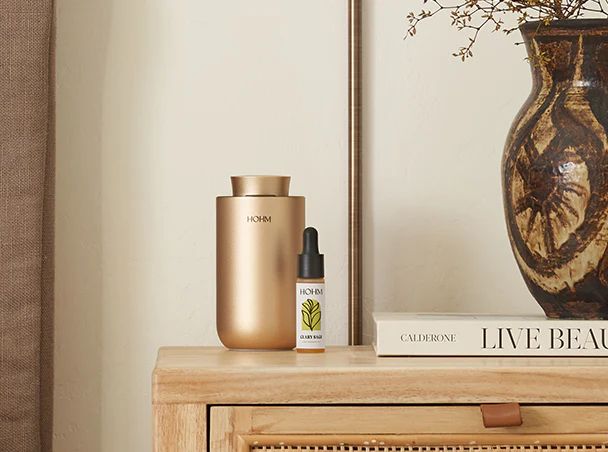Does Lavender And Vanilla Help You Sleep?
Lavender and vanilla are popular essential oils that have long been used in aromatherapy for promoting sleep. Lavender is known for its calming, relaxant properties while vanilla evokes feelings of comfort and warmth. Both have been used in traditional medicine and alternative therapies like aroma diffusers and massage oils to help induce sleep. Research shows that lavender and vanilla have mild sedative effects when inhaled or applied topically. Their soothing fragrances can help to calm the mind, relieve anxiety and tension, and set the stage for restful sleep.
How Lavender Promotes Sleep
Lavender is one of the most popular essential oils used for promoting better sleep and relaxation. This is due to its soothing floral aroma that has a calming effect. When inhaled, the scent of lavender activates areas of the brain responsible for controlling emotions and the autonomic nervous system. This helps lower heart rate and blood pressure, allowing the body to shift into a more relaxed state.
Studies show that lavender increases alpha brain waves which are associated with light sleep and relaxation. Alpha waves help transition the brain into the deeper stages of sleep we need to feel rested. Just smelling lavender oil before bed can help prime the body for sleep by calming the nervous system.
Lavender has sedative properties soothe anxiety and stress that can interfere with sleep. Its calming scent helps promote tranquility, serenity and peacefulness. By reducing nervous tension and feelings of unrest, lavender allows both the mind and body to unwind, making it easier to fall asleep and sleep more deeply.
How Vanilla Promotes Sleep
Vanilla has a naturally soothing and calming aroma that can help relax the body and mind before bed. The scent of vanilla increases levels of serotonin, which is a neurotransmitter that promotes feelings of happiness and contentment. Higher serotonin levels can help reduce stress, anxiety, and depression, which all contribute to sleep difficulties.
Vanilla also helps lower stress hormone levels in the body, like cortisol and adrenaline. When we are stressed or anxious, these hormones increase, keeping us wired and alert. By breathing in the sweet aroma of vanilla, the body is signaled to relax, and stress hormone levels start to naturally decrease as a result. With lower cortisol levels, the body finds it easier to fall asleep and sleep more soundly through the night.
Research has shown that vanilla’s soothing fragrance can lower heart rate and blood pressure, two physiological markers of stress and anxiety. As the body is calmed down before bed, sleep comes easier and more naturally. The aroma of vanilla is very gentle and unlikely to cause any stimulation or alertness like some other herbal scents.
Science Behind Aromatherapy for Sleep
The effects of aromatherapy on sleep are largely due to the limbic system’s role in regulating emotions and memory. The limbic system is a set of brain structures including the hippocampus, amygdala, and hypothalamus.
When essential oil molecules are inhaled, they enter the nostrils and stimulate olfactory receptors. The olfactory pathway sends signals directly to the limbic system, bypassing the blood-brain barrier. This allows essential oils to have a direct influence on emotions and mood.
Studies suggest that inhaling essential oils like lavender and vanilla may calm the activity in the limbic system, reducing anxiety and emotional stress that can interfere with sleep. The natural sedative properties of the oils can promote relaxation and help initiate restful sleep.
Studies on Lavender and Sleep
Several scientific studies have shown lavender’s calming properties help promote sleep. A systematic review published in the Journal of Alternative and Complementary Medicine looked at 16 clinical trials examining lavender’s effect on anxiety and sleep quality. The evidence showed lavender aromatherapy led to improvements in sleep quality, including increasing slow wave (deep) sleep and decreasing rapid eye movement (REM) sleep.
One randomized study published in Psychiatry Research had 31 university students inhale lavender or a placebo before bed for 5 weeks. The lavender group reported significantly better sleep quality, increased morning energy, and better mood. They also had an average 20 minute decrease in time to fall asleep.
A study in Complementary Therapies in Medicine showed elderly people taking lavender capsules for 10 weeks reported better sleep and reduced medicine use. Another study had poorly sleeping older women take lavender capsules daily for 4 weeks. The lavender group improved their sleep quality and duration, with less frequent waking.
Research confirms lavender’s calming properties promote relaxation and help reduce insomnia and other sleep issues. Studies suggest it may work by lowering heart rate and blood pressure, decreasing stress hormones, and elevating mood.
Studies on Vanilla and Sleep
Several studies have been conducted to analyze the effects of vanilla on sleep and insomnia. Here is an overview of key studies and their findings:
A 2015 study published in the Journal of Traditional and Complementary Medicine evaluated the effects of vanilla aroma on insomnia. The study included 63 participants with insomnia who inhaled vanilla scent for 5 minutes before bedtime every night for 2 weeks. The results found significant improvements in insomnia severity and quality of sleep.
Another study published in 2020 in the journal Medicines investigated the sleep-promoting effects of vanilla aromatherapy massage versus control in cancer patients. 46 cancer patients were randomly assigned to either receive a vanilla aromatherapy massage or no aroma control massage once a week for 4 weeks. The study concluded that the vanilla aroma massage was more effective in improving subjective sleep quality compared to massage alone.
In a 2017 study in the journal Scientific Reports, researchers tested the effects of vanilla on stress levels and sleep quality in an experimental rat model. They found that chronic administration of vanilla extract decreased sleep latency and increased non-REM sleep in the hyper-excitable rats. This suggests that vanilla may have anxiolytic and sleep-promoting effects.
Other Essential Oils for Sleep
In addition to lavender and vanilla, there are other essential oils that can help promote sleep when used properly. Some examples include:
Chamomile – Has a gentle, floral scent that is calming. Some studies have shown inhaling chamomile can reduce anxiety and improve sleep quality.
Cedarwood – Has a warm, woody aroma that is relaxing. Some research suggests cedarwood may help induce sleep and reduce nighttime awakenings.
Bergamot – Features a citrusy scent that is uplifting yet calming. Studies show bergamot aroma may reduce anxiety and improve sleep in people with insomnia.
Ylang Ylang – Has a sweet, floral fragrance that is soothing and sensual. Some evidence indicates ylang ylang can lower blood pressure and heart rate.
While many essential oils can promote relaxation, always consult a doctor before using them, especially if you have sensitivities or health conditions.
Risks and Considerations
When used properly, lavender and vanilla essential oils are generally considered safe. However, there are some risks and considerations to keep in mind:
Topical use of essential oils can cause skin irritation or allergic reactions in some people. It’s best to dilute essential oils in a carrier oil or lotion and do a patch test before widespread use.
Never ingest essential oils unless under the guidance of a trained professional. Consuming essential oils can be toxic.
Pregnant women should use caution with essential oils, as some have hormonal effects. Always consult your doctor before use.
Essential oil diffusers should not be left unattended around pets or small children. Proper ventilation is important.
Lavender and vanilla essential oils are not intended to treat, cure or prevent any disease or medical condition. They should be used as a complementary approach alongside traditional medical treatments if needed.
Don’t rely on essential oils as the sole solution for sleep troubles. Maintaining good sleep hygiene habits is also important.
Every person responds differently to aromatherapy. Some trial and error may be needed to find the right oils and methods that work for your needs.
How to Use Lavender and Vanilla for Better Sleep
There are several ways to incorporate lavender and vanilla aromatherapy into your nightly routine for better sleep:
Essential Oils
Add a few drops of lavender or vanilla essential oil to your pillow or bedsheets before going to bed. The aroma will help trigger relaxation. You can also put a few drops into an essential oil diffuser in your bedroom.
Lotions
Apply a lavender or vanilla scented lotion to your skin before bedtime. As you breathe in the scent, the aromatherapy qualities will promote calmness.
Tea
Sip a cup of lavender or vanilla tea before bed. The warm, fragrant liquid will help you unwind and relax.
Bath
Add a few drops of lavender or vanilla oil or bath salts to your bath water in the evening. The aromatherapy steam will induce drowsiness.
Room Spray
Make a lavender and vanilla room spray by adding several drops of each essential oil to water in a spray bottle. Mist your bedroom, linens, curtains and pillows lightly before bed.
Conclusion
In summary, both lavender and vanilla have been shown to help promote better sleep through different mechanisms. Lavender has a relaxing, sedative effect that can help reduce anxiety and restlessness at bedtime. The linalool in lavender interacts with neurotransmitter receptors in the brain to induce relaxation. Vanilla promotes sleep by soothing the nervous system thanks to its rich antioxidant content. Studies have found that vanilla’s aroma can increase time spent in deep sleep.
When used together, lavender and vanilla can have a synergistic effect to create optimal conditions for restful sleep. A few drops of lavender and vanilla essential oils added to a diffuser at bedtime is an easy, natural way to incorporate these scents. For best results, maintain a regular sleep routine and make sure your bedroom environment is conducive to sleep. Aromatherapy with lavender and vanilla should be combined with other healthy sleep habits like avoiding screens before bed. With this multi-pronged approach, the soothing aromas of lavender and vanilla can help pave the way for a good night’s rest.


